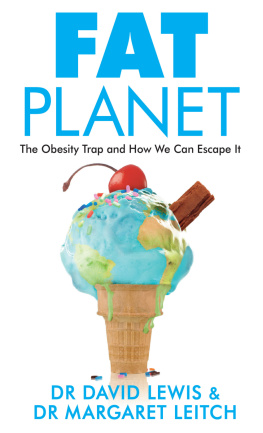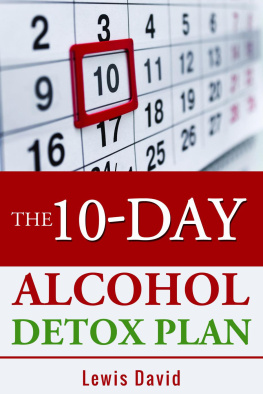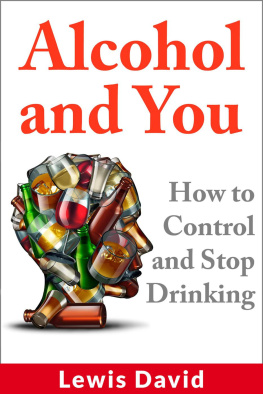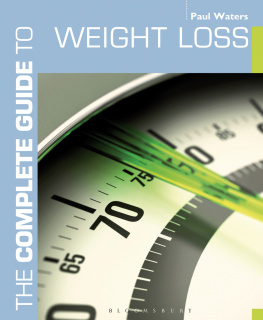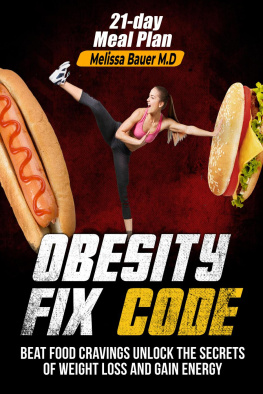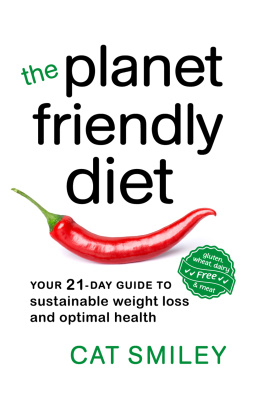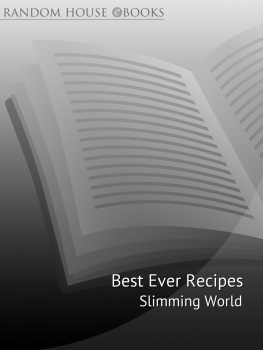Contents
Acknowledgements
We have been tremendously fortunate, whilst writing this book, in having the assistance of some of the worlds foremost experts in obesity. This project would not have been possible without the generosity and dedication of these leading neuroscientists, physiologists and policy experts.
Drs Nicole Avena and Alan Geliebter from the University of Columbia, and Kent Berridge, University of Michigan, are internationally respected specialists in neurocognitive aspects of food pleasure and reward. Given the extent to which obesity is driven by the pleasure of consumption, their expertise was invaluable in the completion of this book.
We would also like to extend our gratitude to Dr Emma Boyland at the University of Liverpool and Dr Laura Forbes at the University of Guelph who provided insight into nutrition and food marketing.
Dr Jean-Philippe Chaput from the Childrens Hospital of Eastern Ontario, Canada, advised us on the link between circadian rhythms and appetite control.
Dr Jeffrey Friedman, a leading expert in molecular genetics and recipient of Time Magazines Best in Science, gave us a fascinating personal account of his discovery of the hormone leptin.
Market researcher and psychophysicist Dr Howard Moskowitz, CEO of i-Novation Inc. as well as President of Moskowitz Jacobs Inc., contributed greatly to our understanding of the factors that make food taste delicious.
Dr Sean Kelly, former lecturer in neurotoxicology at the University of Newcastle-upon-Tyne, provided valuable feedback on medical and physiological complications associated with excess adiposity.
We are also most grateful to Rand Corporation policy expert Dr Deborah Cohen and to Dr Yoni Freedhoff, one of Canadas most respected authorities on food policy, whose insights enabled us to structure a clear set of guidelines on this complex and politically sensitive topic.
Hank Cardello, former food industry executive and author of Stuffed: An Insiders Look at Whos (Really) Making America Fat offered excellent perspectives on the business case for producing healthier and more nutritionally sound food.
Our grateful thanks to Steven Matthews, LLB, LLM, MA who was kind enough to read the manuscript and provide an astute and perceptive critique of the early drafts; to Matt Briggs for the medical illustrations; to Duncan Smith and Amy Maddock of Mindlab International for their support and advice; to Dan Jones, hypnotherapist, and to Robert E. Lamb PhD of Michigan City, North Dakota for his insights into obesity in the US.
We should also like to acknowledge the assistance of Jane Lee, Southern Railways press officer, for arranging filming facilities, and videographer Jerry Laurence and stills photographer Afonso Palma. We are very grateful to Lee McMurray, Emily Kennedy and Curtis Leighton-Jones, Endemol Series Producers on Series 1, 2 and 3 of Channel 4s Secret Eaters and also to Anna Richardson, who presented the series, for enabling us to replicate some key studies into the psychology of obesity.
Last, but certainly not least, we would like to extend our grateful thanks to our Random House editors, Nigel Wilcockson, for commissioning the book and suggesting its title, and Harry Scoble, for his excellent and thorough work on the manuscript.
We sincerely appreciate all your time and support in helping us provide these insights into the worlds most serious and most misunderstood health crisis.
CHAPTER 1
What It Feels Like to Be Fat
Did this ever happen to you? You were walking in the mall either by yourself or with a friend and you caught sight of yourself in a mirror... and found yourself wondering, Who is that and how did I get like this?
Diane Carbonell
LOOK AT THAT fat lump, we heard a young male student mutter to his friends. Isnt she disgusting!
Most people would be deeply offended by such a spiteful remark.
We were delighted!
The success or failure of the study we were about to undertake depended on our audience reacting to us realistically. This appalling behaviour only served to demonstrate fatism is as real as it is cruel. Our area of scientific research lies in the psychological and neurocognitive aspects of weight gain. We study the factors that influence the food people buy and the amount they eat, factors which are often subtle or hidden. But while we understood obesity from a scientific point of view, there was one aspect of the issue about which we were entirely ignorant.
What it feels like to be fat.
Today we were going to remedy, in some small and limited way, that gap in our knowledge. One of us (Margaret) had been transformed from a slim and athletic young woman into someone not just a little overweight but seriously obese. Margaret had donned a kapok-lined fat suit. She had done so previously, while working at the University of Albertas Diabetes Research Institute. That had been just for a short period to see what it felt like. And today, rather than staying in a research institute where people with a Body Mass Index (BMI) over 50 are a familiar sight, she would be out on the streets among strangers.
With two major universities and a large gay community, the seaside city of Brighton is a lively, vibrant and youthful place where, for many, fitness and self-image is important. We thought that people there would likely be critical, perhaps openly, of a seriously obese person. Margaret was going to spend a day there.
Why were we conducting this study?
Certainly not to mock or demean those with a genuine weight problem. Nor to trivialise the very real difficulties they experience on a daily basis. Rather, we hoped to gain some first-hand insights into the physical and mental challenges of being obese.
To ensure an accurate record of everything that happened, Margaret was wired for sound with a hidden microphone that would record everything other people said, as well as enabling her to keep up a commentary of her thoughts, feelings and experiences. She would also be followed, at a discreet distance, by a videographer, whose task it was to record the way other people responded to her in the street, on public transport and while shopping. Heres what happened on what turned out to be one of the most tiring and dispiriting days of her life.
In the Mindlab Laboratory: 8.50 a.m.
Struggling to pull on my supersized jeans. I am starting to appreciate the very real practical difficulties of being obese. I knew before I started that adjusting mentally and physically to my newly supersized body would be tricky. But, even taking my inexperience as an overweight woman into account, I am stunned at how hard it is to dress. Hoisting those jeans over my vastly expanded legs is proving far harder and more time consuming than I expected. I cant believe how little give they have in them.
9.25 a.m.
It has taken me over twenty minutes to pull up my jeans and, after an exhausting struggle, fasten the belt. While slipping into my loose fitting top isnt overly challenging, putting on my shoes proves frustratingly hard and doing up the laces even more so. Perhaps I should have bought some with Velcro fasteners.
9.55 a.m.
Finally dressed. No time to bother with hair or make-up but for once I dont care. I am reluctant to see myself in the mirror. It isnt that I feel ashamed but rather that some actions suddenly seem less important than others. I find myself adopting a kind of utilitarian perspective on my priorities. Being concerned with my appearance feels frivolous and unnecessary when just getting my clothes on has proved such a major undertaking.
Perhaps this helps explain why some obese people can struggle to see themselves as overweight; many avoid mirrors to shield themselves from the physical reality of their bodies. Overweight people with whom I have discussed this confirm its a psychological defence mechanism they sometimes use.
Next page
